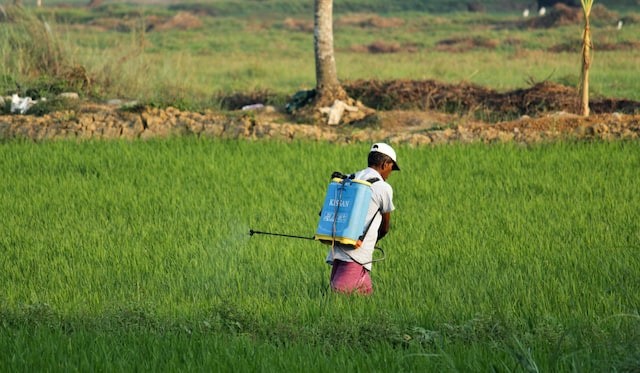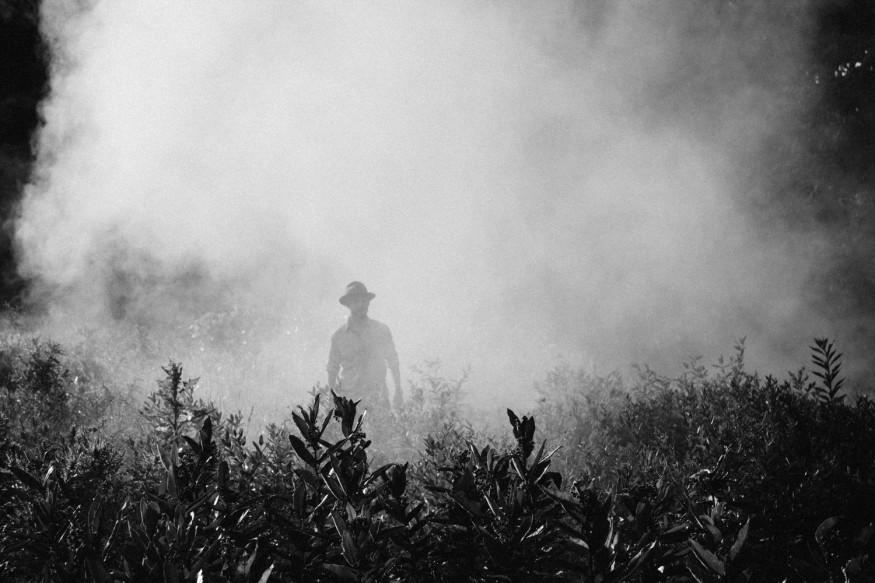According to a research, pesticide use has virtually doubled since 1990. According to Pesticide Atlas, agricultural pesticides are to blame for the population decline of field birds and butterflies of 30%.

Global Pesticide Usage

According to a new Pesticide Atlas, the usage of pesticides worldwide has increased by 80% since 1990, with the global industry expected to reach $130 billion in 2019.
The study shows that pesticides are also to blame for 385 million cases of poisoning and 11,000 human deaths annually.
Because of their usage, populations of field birds and grassland butterflies have decreased by around 30% since 1990. Due largely to hazardous chemical compositions in herbicides, pesticides, and fertilizers, about one in ten of Europe's bee species are in danger of going extinct.
"The data is startling; the existing food system based on the excessive use of harmful pesticides is seriously failing farmers and consumers and fueling biodiversity decline," said Clara Bourgin, a campaigner at Friends of the Earth Europe, one of the organizations that created the atlas. The EU has to cease turning a blind eye to the increasingly dangerous commerce of agribusinesses and start paying attention to its people.
The EU has long struggled to balance efforts to lessen the harm caused by pesticides and calls from farming interests to keep using them.
A representative for the European Commission stated that the organization would present its case to the EU appeals body "as soon as practicable." In response to a question on what would happen if the appeal was denied, he stated: "We have to adhere to our legal commitment to extend the approval, and that's what we are doing."
Agriculture Regulations

Some of the EU's green agricultural regulations have already been loosened in response to earlier this year's argument that food security needed to take precedence as the conflict in Ukraine escalated.
Several member states are now reevaluating a commitment made by the EU's leading Farm to Fork plan to reduce pesticide usage and dangers by half by 2030.
The agriculture lobby is shamelessly using Russian aggression in Ukraine to try and keep us on the path to ecological catastrophe, according to Ariel Brunner, the policy director of BirdLife Europe. The European Commission must uphold the Green Deal and fight for the significant adjustments that farming needs to survive the escalating ecological and climate crises.
The EU, the leading supplier of crop protection goods globally, sells 25% of all pesticides. Toxic weedkillers are now permitted to be exported from the EU to developing nations with laxer standards while being prohibited on the continent.
Chemicals All Over
According to the atlas, European agrochemical businesses intended to export 81,000 tonnes of illegal chemicals in their fields in 2018. In the same year, 65% of all pesticides used in four states of Nigeria and more than 40% of all pesticides used in Mali and Kenya were hazardous.
As part of its 2020 Green Deal, the commission promised to try to stop the transport of harmful cargo. Still, a legislative proposal is conspicuously missing from the commission's 2023 work schedule that the Guardian saw.
Michèle Rivasi, a senior Green MEP, called the shipments "an environmental bomb and a violation of human rights" in a furious tweet she sent to the EU's environment commissioner on Monday.
Only 1.6 million of the 385 million pesticide poisoning cases recorded in the atlas were in Europe, 255 million were in Asia, and more than 100 million were in Africa.
For similar news, don't forget to follow Nature World News!
© 2026 NatureWorldNews.com All rights reserved. Do not reproduce without permission.





